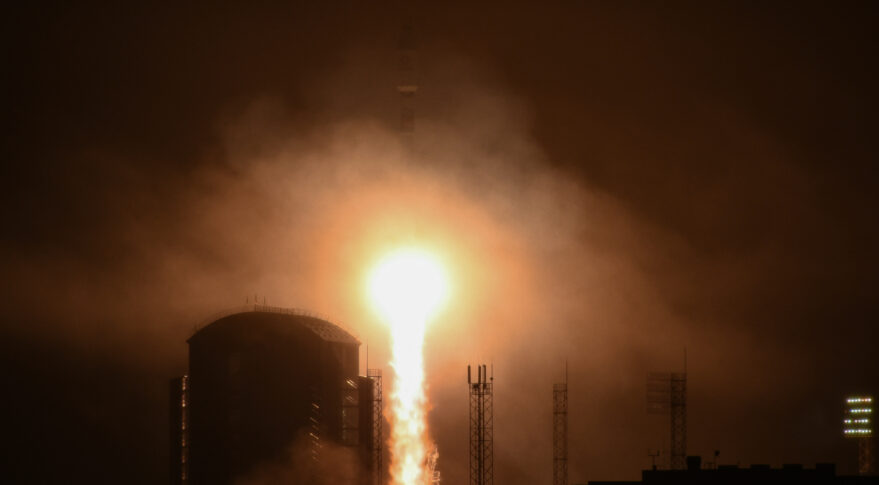OneWeb constellation to cross 200th mark after successful launchby Jason Rainbow — May 28, 2021 [SN]
 A Soyuz rocket carries 36 satellites in OneWeb's seventh launch mission. Credit: Roscosmos, Space Center Vostochny, TsENKI
A Soyuz rocket carries 36 satellites in OneWeb's seventh launch mission. Credit: Roscosmos, Space Center Vostochny, TsENKITAMPA, Fla. — OneWeb’s broadband constellation is set to pass the 200th mark after Arianespace successfully launched its latest batch of satellites May 28.
Arianespace launched 36 satellites on a Soyuz-2.1b rocket 1:38 p.m. Eastern from the Vostochny Cosmodrome, in Russia, which will enlarge OneWeb’s fleet to 218 satellites.
The mission was initially scheduled for May 27, but Arianespace delayed it to replace “one item of electrical equipment on the Soyuz launcher” at the launch site, adding that the rocket and satellites were in a stable and safe condition.
Source:
https://spacenews.com/oneweb-constellation-to-cross-200th-mark-after-successful-launch/